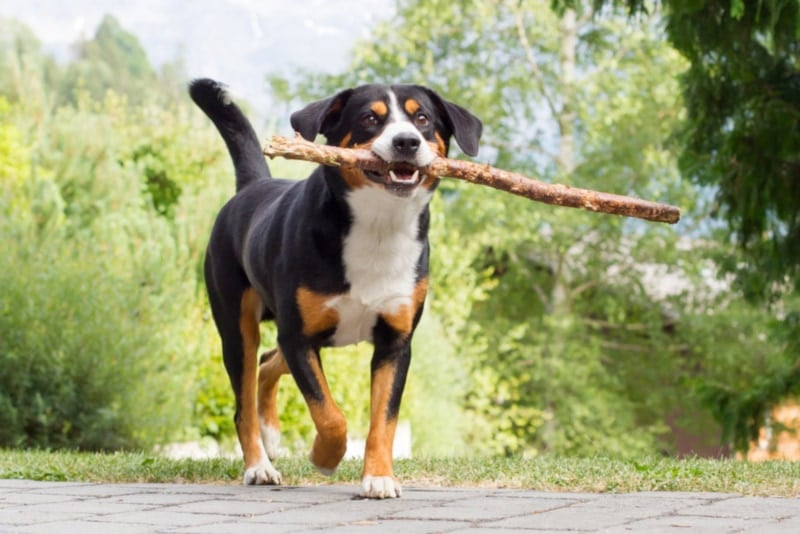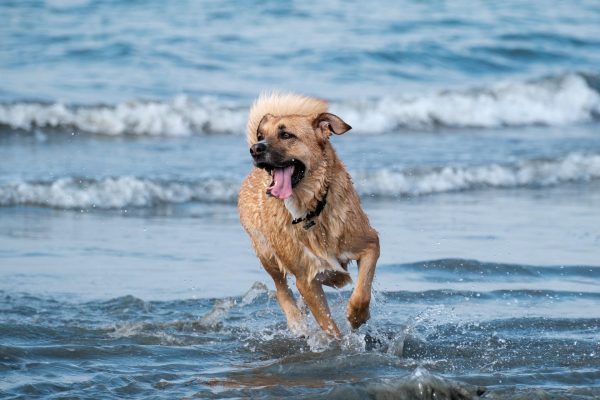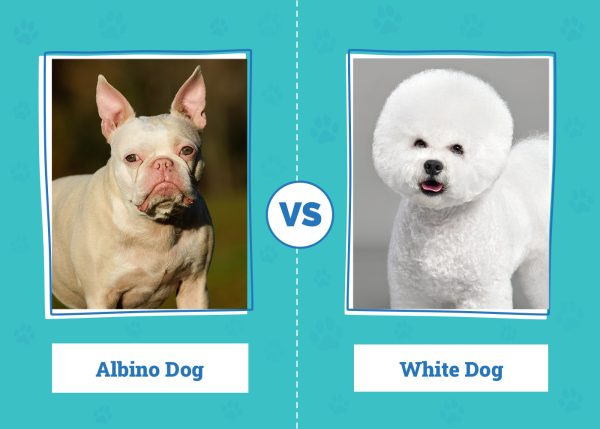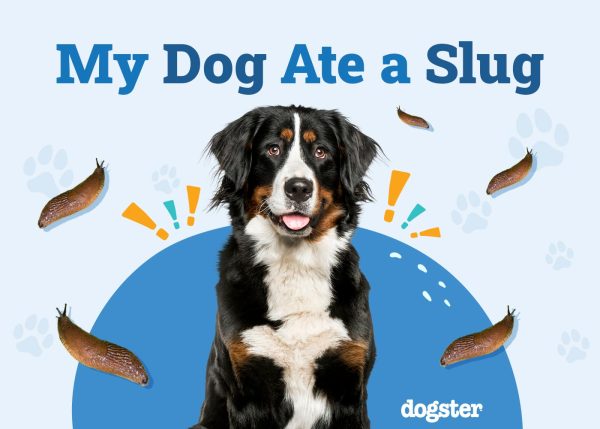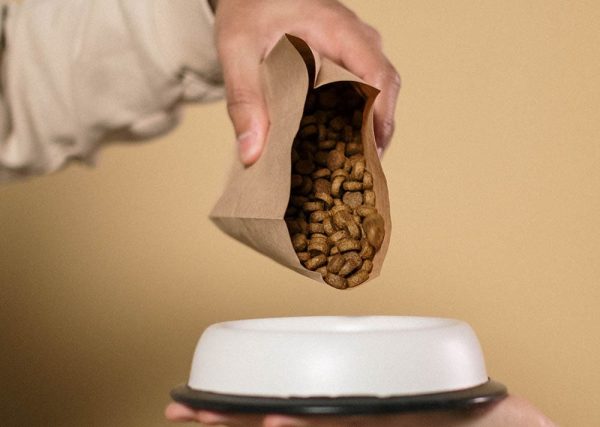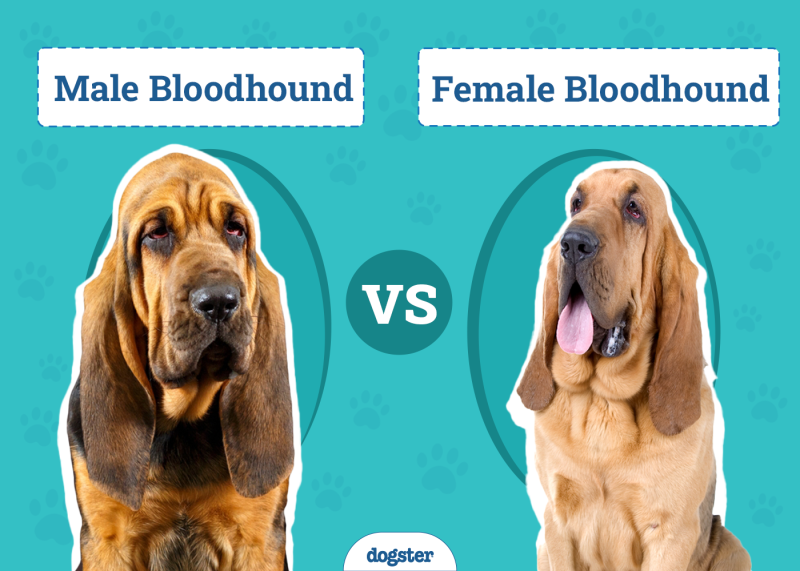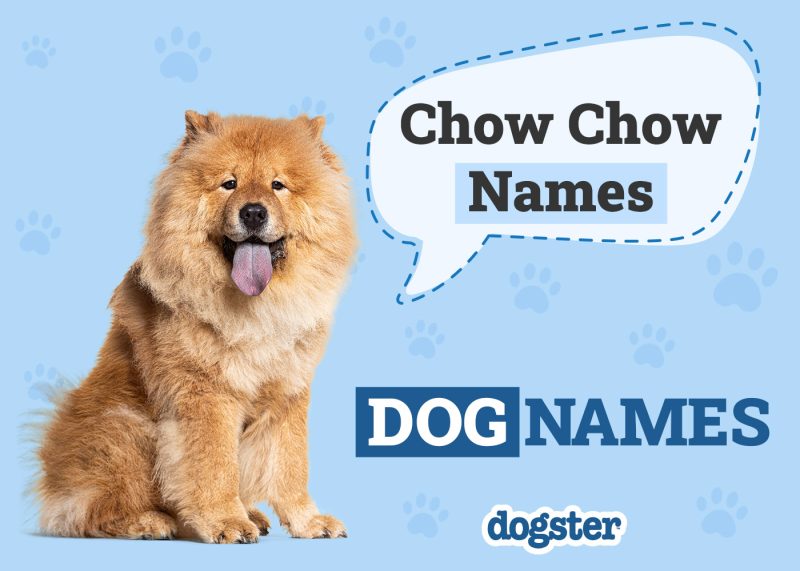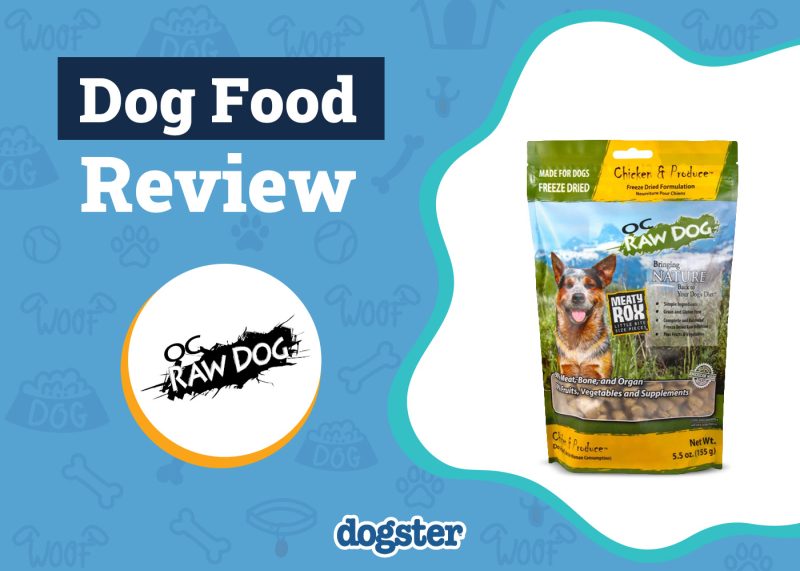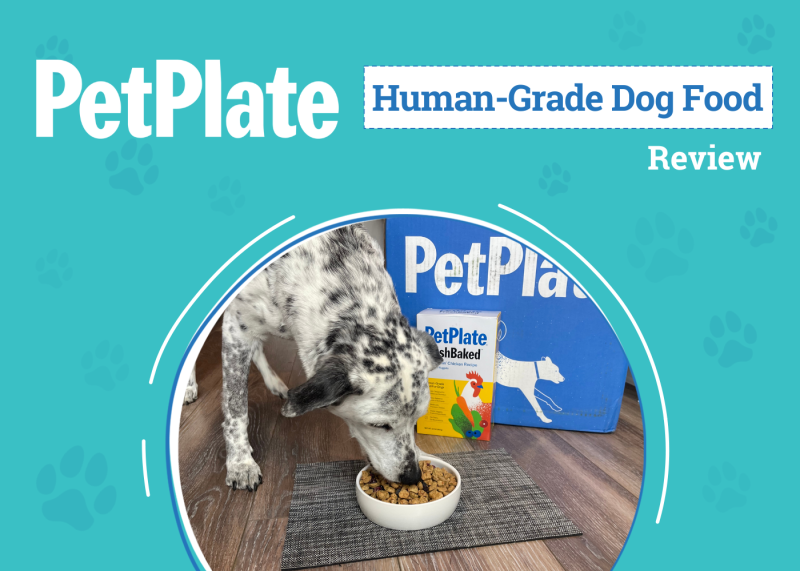In this article
View 8 More +The Appenzeller Sennenhund or the Appenzeller Mountain dog is one of the four types of Swiss Sennen breeds. They are herding dogs with a medium size and typical temperament of other herding breeds. Appenzeller Sennenhunds are adaptable dogs that are eager to learn new things and please their owners.
So, what makes this breed so interesting to own and what does their care entail? Keep reading to find out more.
Breed Overview
Height:
20–22 inches
Weight:
48–70 pounds
Lifespan:
13–15 years
Colors:
Black, brown, and white
Suitable for:
Active families or looking for a protective farm or guard dog
Temperament:
Obedient, loyal, protective, hard-working, intelligent
The Appenzeller Sennenhund originates from Switzerland’s Appenzell region. They were recognized as a breed in the 1890s, but the first breed standard wasn’t developed until 1914.
Appenzeller Sennenhunds have a similar appearance to other types of Swiss mountain dogs. You can tell the Appenzeller Sennenhund apart from other Swiss mountain dogs by their curly tails. They stand between 20 to 22 inches tall and weigh up to 70 pounds. These dogs have short, sleek coats with black, brown, and white coloration.
This breed has everything you would want in a loyal and hardworking guard or farm dog.
Appenzeller Sennenhund Characteristics

Appenzeller Sennenhund Puppies
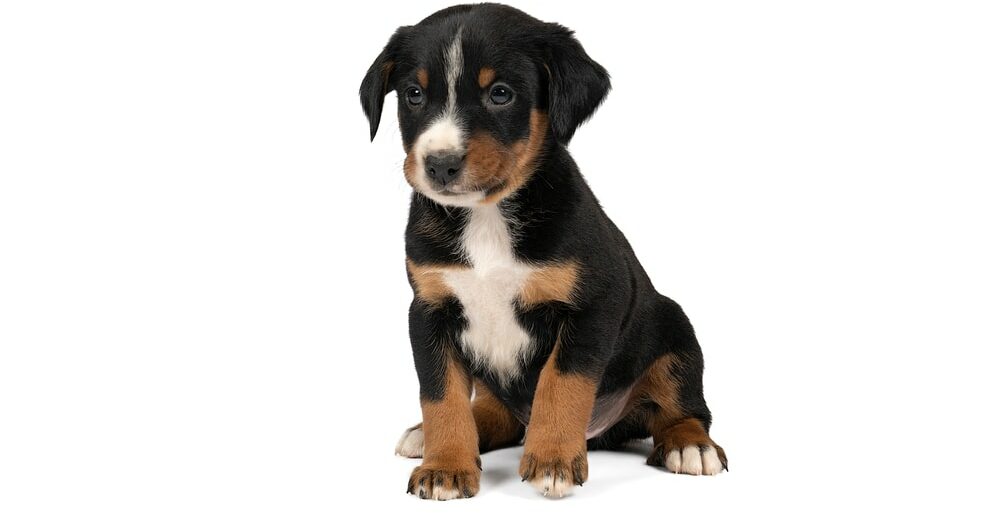
Appenzeller Sennenhund puppies are known for their high energy levels and playfulness. They can pick up new skills relatively quickly thanks to their high intelligence and show strong herding instincts from a young age. Appenzeller Sennenhund puppies need plenty of early training and socialization and training should begin as soon as you bring them home. Appenzeller Sennenhunds are a rare breed outside of Switzerland, so you are more likely to find one from a breeder rather than up for adoption.
If you are looking for an Appenzeller Sennenhund in the United States, you may need to broaden your search to international breeders.

Temperament & Intelligence of the Appenzeller Sennenhund
As a versatile breed, you can expect the Appenzeller Sennenhund to have a lot to offer as both a family pet and a working dog. Their temperament is everything you would look for in a good herding or working dog—obedient, loyal, and intelligent. Furthermore, Appenzeller Sennenhunds have a strong desire to protect, which makes them decent watch or guard dogs for families or farmers. Their high intelligence makes them easy to work with and train.
Appenzeller Sennenhunds thrives with plenty of exercise, training, and herding tasks. This makes them better suited for more experienced dog owners who can meet all the needs of an active herding dog breed.
Are These Dogs Good for Families? 👪
Appenzeller Sennenhunds can make good family dogs if you can provide them with a spacious environment, proper training, and engaging activities to keep them busy. They are not the best fit for families who are out all day and don’t plan to spend much time with a dog.
Appenzeller Sennenhunds are also not right for families with young children as they tend to try and herd them. This can be dangerous for young children who may fall or get injured if an Appenzeller Sennehund tries to herd them.
Active families looking for a highly energetic and intelligent dog breed will be suited for an Appenzeller Sennenhund. Farmers can also benefit from the Appenzeller Sennenhund’s strong herding and protective instincts.
Does This Breed Get Along with Other Pets?
This breed can get along well with other dogs and cats if they have been properly socialized. They get along well with cattle since they were originally bred to herd these livestock. Furthermore, farmers would also use Appenzeller Sennenhunds to protect cattle and guard their property. Most Appenzeller Sennenhunds are willing to herd and protect sheep and other livestock like chickens too, although they are instinctively familiar with cattle.
As with most dogs, Appenzeller Sennenhunds should not interact with small companion animals such as hamsters, birds, or rabbits.

Things to Know When Owning an Appenzeller Sennenhund:
Food & Diet Requirements 🦴
Appenzeller Sennenhunds benefit from a high-quality diet suited for high-energy breeds. Their diet should consist of a balance of essential vitamins, minerals, fats, proteins, and carbohydrates. They do not need to be on a breed-specific food so you can choose from a selection of commercial dog foods in the form of kibble, raw, canned, or freeze-dried foods.
It’s recommended to choose a food with joint supporting benefits or add a joint supplement to their food. This may help to keep their joints healthy with their active lifestyle.
Exercise 🐕
Appenzeller Sennenhunds have demanding exercise requirements that the average dog owner might find challenging to meet. These dogs do not do well with being cooped up in a home or yard with nothing to do. They need to be taken on regular walks and have ample opportunity to play and explore in a spacious yard.
Appenzeller Sennenhunds can benefit from a 15 to 25-minute walk a day followed by an hour of exercise and playtime. You ideally want to give your Appenzeller Sennenhund toys and activities that engage their natural desire to herd.
Training 🎾
The highly intelligent Appenzeller Sennenhund is eager to be trained and learn new things. They are often responsive to most types of training, but especially obedience training. Appenzeller Sennenhunds excel at herding and protecting livestock, which can be seen by their instinct to sometimes herd people and other pets.
Structured training sessions using positive reinforcement are great methods to use when training this breed. You don’t want to use inconsistent or long training sessions as Appenzeller Sennenhunds may get bored easily.
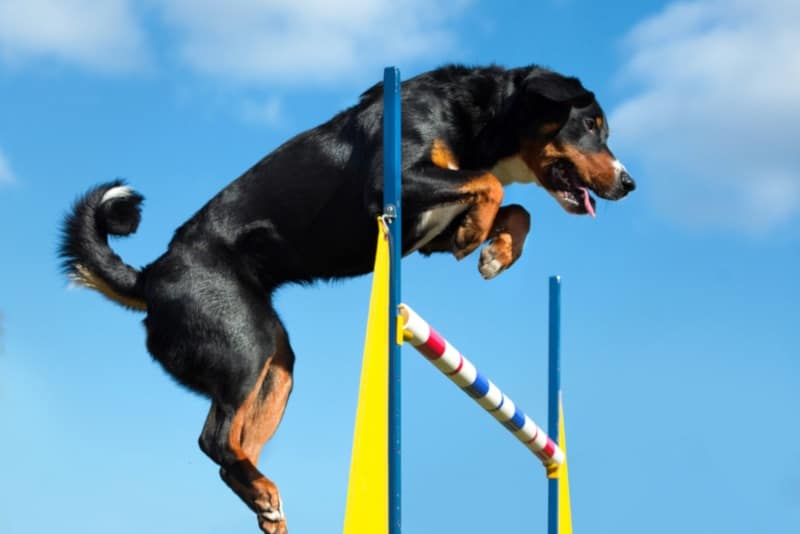
Grooming ✂️
Many people choose this breed specifically for their manageable coat which is easier to maintain than many other herding dog breeds. Their short, smooth coats only require brushing once or twice a week. Nail trims and dental hygiene are their most important grooming needs.
If your Appenzeller Sennenhund does work that makes them dirty easily, a simple wash using a gentle cleaning shampoo and rinse works well to get their coat looking fresh again.
Health and Conditions 🏥
Below are some of the different health conditions that may affect Appenzeller Sennenhunds.
- Hereditary eye disease (wall eye)
- Arthritis
- Urinary tract infections (UTI)
- Hip and elbow dysplasia
- Gastric torsion
- Disk disease
- Colitis
- Heart diseases

Male vs Female
Male and female Appenzeller Sennenhunds have similar care requirements. The main differences between the sexes are based on hormones and reproductive health problems.
Both male and female Appenzeller Sennenhunds have a strong work ethic and desire to herd and protect. However, male Appenzeller Sennenhunds are sometimes preferred for work because they are believed to be more energetic. Both sexes have a similar size, but males tend to be slightly heavier than their female counterparts.
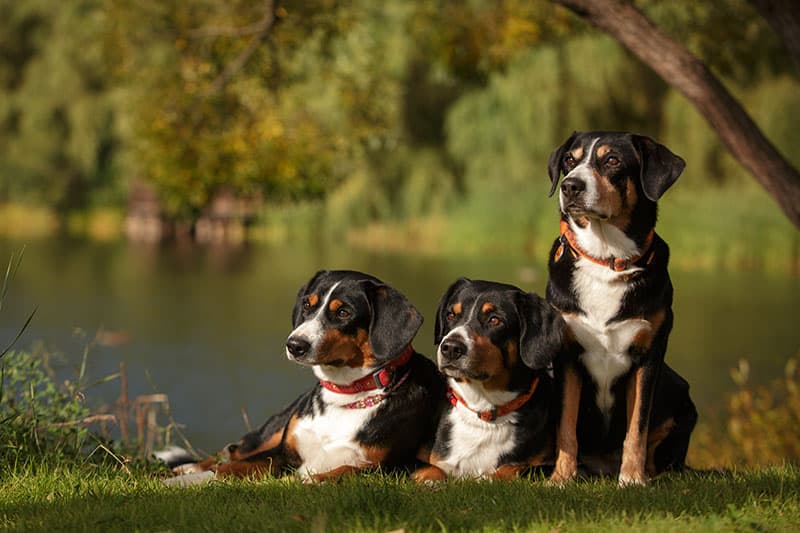

3 Little-Known Facts About The Appenzeller Sennenhund
1. The Appenzeller Sennenhund is the third largest and rarest of the Swiss mountain dog group.
The Appenzeller Sennenhund shares its roots with the Bernese Mountain Dog, but it is smaller in size than the Bernese and Greater Swiss Mountain Dog, making them the third largest dog breed of the Swiss mountain dog group. Appenzellers are much less common worldwide than these breeds and are still one of the most difficult Swiss mountain dogs to find outside of their native region of Switzerland.
2. The Appenzeller Sennenhund is characterized by its short tricolored coat, which is available in black, white, and brown.
One of the breed’s standout traits is its shiny and thick tricolored coat. They usually have a black or brown base with white and rust markings on the chest, face, and legs. This coat not only looks distinctive compared to other common dog patterns, but is also easier to care for than the longer coats of similar herding dog breeds.
3. Appenzeller Sennenhunds are considered endangered because they are not widely distributed and have a narrow genetic base.
Appenzeller Sennenhunds are loyal and hardworking dogs, but they’re still mostly found in parts of Switzerland. Since there aren’t many of them and they haven’t spread much around the world, they’re considered an endangered dog breed. Conservation efforts are ongoing, but their restricted gene pool is an obstacle to increasing their numbers without affecting the breed’s health and diversity.

Conclusion
Appenzeller Sennenhunds are loyal Swiss mountain dogs from Switzerland. They were originally used for traditional cattle herding and have carried their strong herding instincts over the decades. They are rare dogs and considered endangered, so it’s difficult to find the breed outside of Switzerland.
You can recognize the Appenzeller Sennenhund by their tricolored coats and curly tails. As a versatile working dog, you will find that they make dedicated herders and protectors for farmers. Appenzeller Sennenhunds also make loyal and energetic companions for active families with older children.
Caring for an Appenzeller Sennenhund is rather simple if you can meet all their needs and have a lot of time to train and exercise them.
Featured Image Credit: MyImages – Micha, Shutterstock
